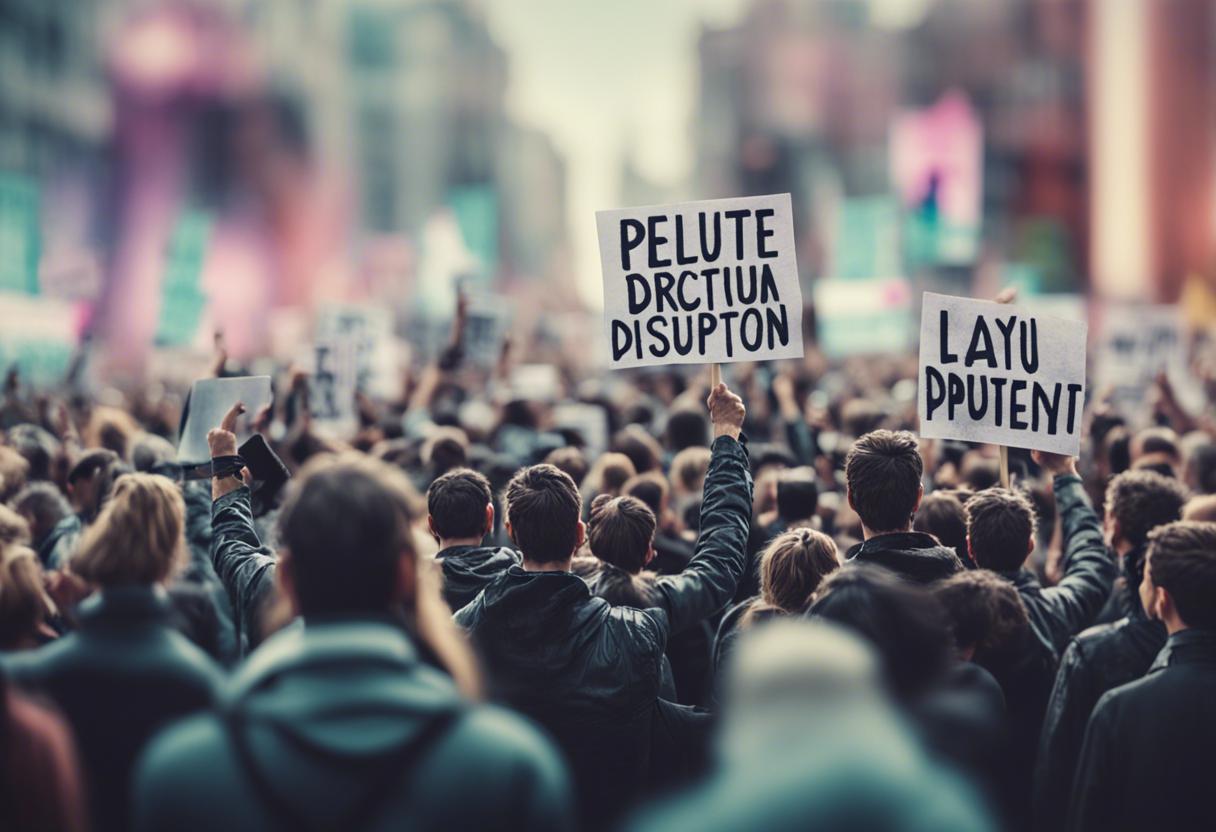On Friday, violent protests against government job quotas led to intense disruptions in television broadcasts and telecommunications across Bangladesh, resulting in nearly two dozen fatalities throughout the week. No comments have been received from the governmental bodies so far. On Thursday, the AFP reported 32 deaths, while Reuters could only confirm a total of 19 deaths and was unable to verify the higher figures. Fresh violence erupted across various regions on Friday with law enforcement utilising tear gas to dissolve the crowds.
The Economic Times of India noted that Bangladesh’s Prime Minister, Sheikh Hasina, was pressured into deploying the army on Thursday evening to preserve order, although Reuters was unable to officially confirm such reports. The presenting outrage against the contentious quota system, noted by students, is believed to have been strongly inflamed by straining economical conditions. Factors such as increasing inflation, mounting unemployment rates and dwindling foreign reserves have aggravated the protests further.
The demonstrations have, significantly, triggered historical and sensitive political tensions, specifically between the champions of Bangladesh’s independence from Pakistan in 1971, represented by Hasina’s Awami League, and those accused of assisting Islamabad following Hasina labelling the protestors as ‘Razakar’ or collaborators.
Concerted efforts to subdue the chaos led to partial disruption of mobile services on Thursday, contributing to greater national disruptions by Friday. Overseas calls were largely neglected and internet calls ultimately disconnected. Online news resources were not updated come Friday morning and their associated social media channels were similarly inactive. Limited voice call functionality was experienced nationally, with mobile data and broadband inaccessible and text messages failing to be delivered. News channels alongside state broadcaster BTV ceased broadcasts whilst other entertainment channels continued uninterrupted.
A report according to a witness revealed that several news channels paused their usual broadcasts due to technical glitches, promising their viewers that regular programming would soon resume. The usually bustling streets of Dhaka, Bangladesh’s capital, were unusually quiet on their weekly holiday, Friday. Traffic was sparse, rickshaws were far and few and marketplaces only attracted a handful of locals.
Public websites associated with key governmental bodies such as the central bank, prime minister’s office and the police, appeared to have been compromised by a group named “THE R3SISTANC3”. Phrases like “Operation HuntDown, Stop Killing Students” and “Prepare yourselves. The fight for justice has begun” featured prominently on these sites, alongside images of five men and two dogs, however, no further information was provided about these images.
They claimed that the government was attempting to suppress the voices of its citizens by shutting down the internet and covering up their actions. The hackers encouraged individuals to stay informed about the on-ground situation and reassured that the student spirit was still resilient.
The country is currently experiencing one of the biggest protests since the re-election of Hasina earlier this year, the main force behind this movement being the high rates of youth unemployment. A significant portion of Bangladesh’s 170 million population remains without jobs or education.
Protestors are demanding the discontinuation of the state policy, which reserves 30 percent of government jobs for families of veterans from the 1971 independence war against Pakistan. The government had previously abolished this system in 2018, but it was reinstated last month by a high court ruling. The government challenged this ruling and it is expected to go under review on August 7th, following a suspension by the supreme court.
Government officials expressed a willingness to negotiate with protestors. However, they were met with opposition, protesters claiming negotiation and violence couldn’t coexist. Numerous people have reportedly been injured during this turbulence, as authorities resorted to using tear gas and rubber bullets against the masses who reacted by setting vehicles, police posts and various establishments on fire.
The main university campus of the capital had been the centre of this nationwide turmoil, but recent activities indicated a shift with amplified protests emerging elsewhere in the city.
The conflict between Russia and Ukraine has severely impacted Bangladesh, forcing it to secure a $4.7 billion rescue package from the International Monetary Fund (IMF) in January 2023. After conducting another evaluation of Bangladesh’s economic support programme in June this year, the IMF has permitted the nation immediate entitlement to approximately $928 million in loans for economic assistance, alongside an estimated $220 million to tackle environmental issues, as reported by Reuters.

